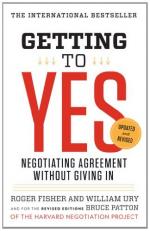|
This section contains 246 words (approx. 1 page at 300 words per page) |
Yes's combination of technical proficiency, enigmatic lyrics, and large egos captured the essence of the progressive rock movement. Formed in 1968, the British art-rock band achieved international success with The Yes Album in 1971. Further success came with Fragile (1972) and its hit single "Roundabout," and Close to the Edge (1972), which is considered by many to be the band's masterpiece.
The band excelled in live shows and is known for its long-jamming songs, some of which are more than twenty minutes long. Lavish crystalline stage sets designed by artist Roger Dean (who also drew the band's album covers) helped make for hugely successful live shows; in the late 1970s, Yes set a record for selling out New York's Madison Square Garden 16 times. In 1983 Yes released 90125 which became their biggest selling album, carried by their only American number one hit "Owner of a Lonely Heart."
Even though the members of the band have changed incessantly over the years, Yes has continued to tour and release new material through the 1980s and 1990s. Their exuberant, complex music and fusion of celestial, spiritual, and pastoral themes have influenced such bands as Genesis, King Crimson, and Rush and has made Yes an all-time favorite for art-rock fans worldwide.
Further Reading:
Martin, Bill. Music of Yes: Structure and Vision in Progressive Rock. Chicago, Open Court, 1996.
Morse, Tim, editor. Yesstories: Yes in Their Own Words. New York, St. Martin's, 1996.
Stump, Paul. The Music's All That Matters: A History of Progressive Rock. London, Quartet, 1998.
|
This section contains 246 words (approx. 1 page at 300 words per page) |


